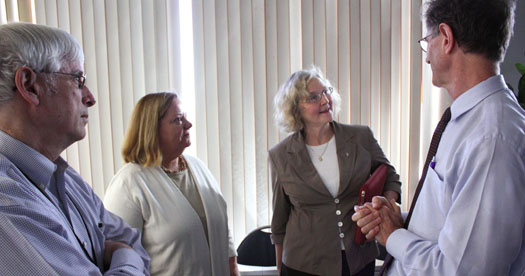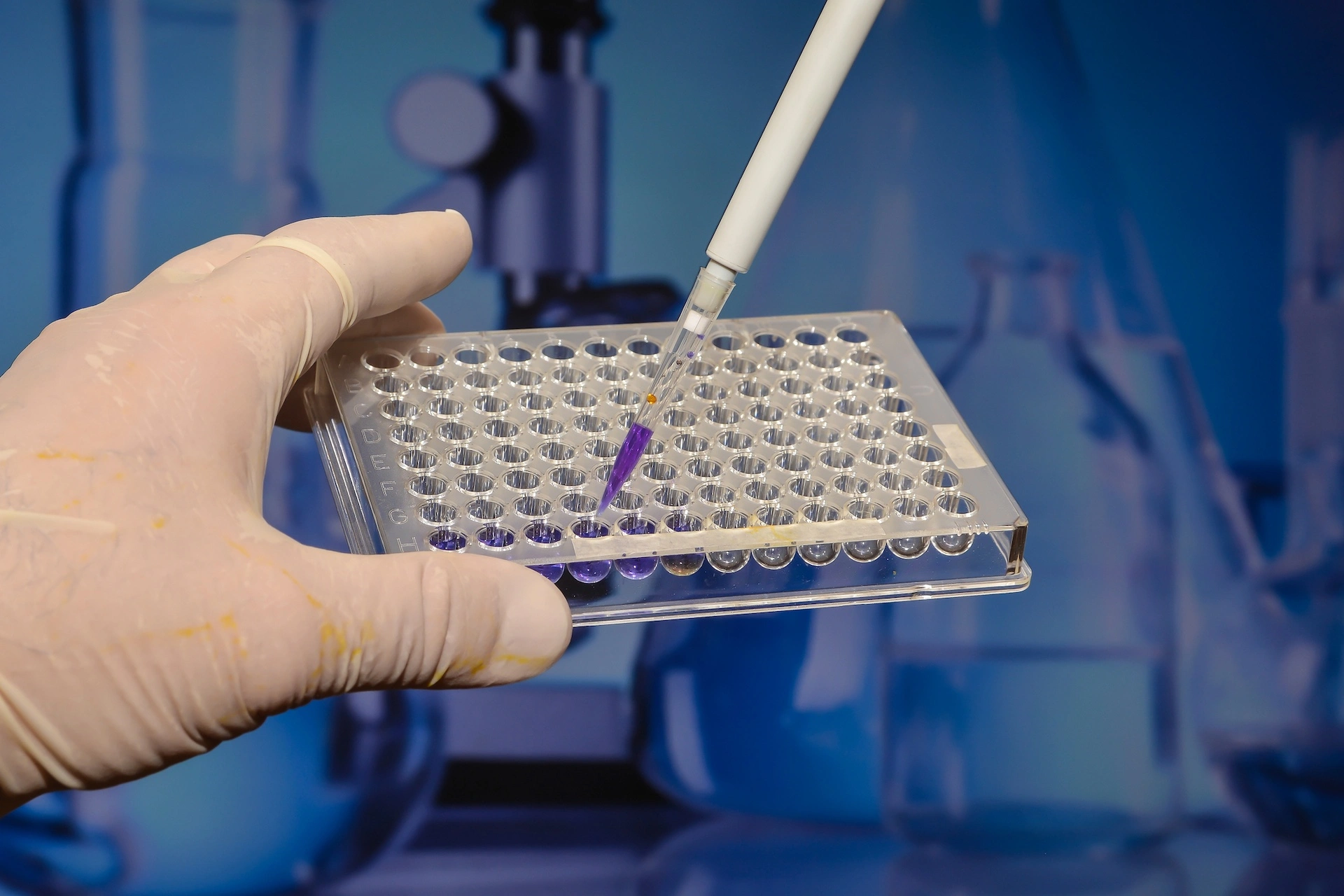It’s not every day Division of Research staff members are briefed by a Nobel Prize winner. Recently, 100 employees of the Division and its Research Program on Genes, Environment, and Health (RPGEH) hosted Elizabeth Blackburn, PhD, one of three scientists awarded the 2009 Nobel Prize for Physiology or Medicine.
Her visit was no coincidence. Thanks to a two-year $24.8 million Grand Opportunity (GO) grant from the National Institutes of Health, Dr. Blackburn is now a Division collaborator. The Division’s RPGEH shares the grant with the University of California, San Francisco (UCSF), where Dr. Blackburn is a professor of biology and physiology.
The RPGEH is led by Cathy Schaefer, PhD, a Division investigator, and co-led by Neil Risch, PhD, a Kaiser Permanente adjunct investigator and director of the UCSF Institute for Human Genetics.
Genome-wide analysis
The GO grant is enabling the RPGEH and UCSF to conduct a genome-wide analysis of DNA samples from 100,000 Northern California Kaiser Permanente members who volunteered to join the RPGEH. Some of the work is being done in a state-of-the-art Kaiser Permanente lab built specifically to enable extraction of DNA from 600 saliva samples a day.
One of the GO grant’s aims is to learn how people can age in the healthiest way, a mission that led to its enthusiastic funding by the NIH’s National Institute on Aging. “We are very excited about the opportunity to develop this extraordinary database in an older population,” says Richard J. Hodes, MD, NIA director.
Additional funding was provided by the NIH Office of the Director and the National Institute of Mental Health.
Nobel winner’s bird’s-eye view of telomere research
On the 22nd floor of Oakland’s tallest building, Dr. Blackburn gave listeners a bird’s-eye view of decades of research into her area of expertise: telomeres, the DNA end caps that keep chromosome strands from unraveling.
Discovering how telomeres — aided by the enzyme telomerase — protect chromosomes is what earned her and two colleagues, Carol Greider, PhD, of Johns Hopkins University School of Medicine, and Jack Stoszak, PhD, of Harvard Medical School, the Nobel Prize in 2009.
Part of the grant enables Dr. Blackburn’s team to measure the telomere lengths of 100,000 RPGEH participants. She expects to complete the work by the summer of 2011.
Telomere lengths may indicate relative health
Dr. Blackburn says studies suggest that the longer one’s average telomere length, the more years of healthy life one may have ahead. Other research has found associations between longer telomere length and reduced risk of contracting serious diseases such as cancer, diabetes and vascular dementia.
But while telomere lengths generally shorten as we age, Dr. Blackburn explained that the enzyme telomerase actively protects chromosomes by helping to lengthen telomeres. Healthy living habits appear to aid this process.
No one yet knows if telomere length actually affects health or is just a biomarker, like a dial that shows what’s happening elsewhere in the body.
But telomere length is not the only genetic information to be gathered from these 100,000 RPGEH participants. A UCSF team led by Pui-Yan Kwok, MD, PhD, working in collaboration with Kaiser Permanente investigators, is now completing a genome-wide analysis of those same Kaiser Permanente samples.
Genotyping SNPs
So far the team has genotyped 72,000 member samples and by this summer plans to finish 100,000. In each sample, researchers are looking at 675,000 single nucleotide polymorphisms (SNPs). Each SNP — pronounced “snip” – is a unit of DNA at a specific chromosome location in which there’s a variation in at least 1 percent of the population.
The team’s goal is an RPGEH data resource that helps investigators better understand how people’s genetic backgrounds interact with environmental factors and life experiences to affect their health or risk of contracting particular diseases
Eligible scientists, including those at the Division and at UCSF, will be able to see which particular SNPs occur more frequently in those with a specific disease compared to those without the disease.
They will also be looking to see if certain SNPs are more commonly associated with health improvements or with side effects linked to a particular medication.
An unprecedented resource for health research
By the end of 2011, as the grant winds down, the new and detailed genetic information on these 100,000 Kaiser Permanente members — along with the Blackburn lab’s telomere data — will be linked to decades of clinical and other health-related information about them. The resulting data-based resource will be the first of its kind about such a large and diverse population.
“What’s really exciting is the evolution of this really rich picture of people’s health and health changes over time,” said Dr. Schaefer. “Researchers will be able to study baseline telomere length and genome-wide SNPs in relation to robust longitudinal member health data.”






This Post Has 0 Comments